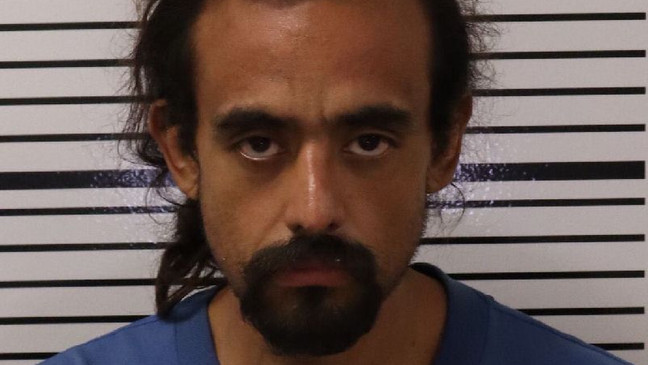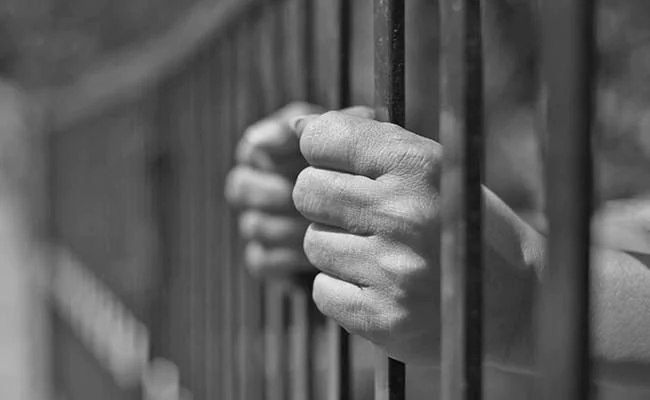In a recent court decision, 38-year-old Luis Nuno from Tulare County has been handed a life sentence after being found guilty of a third strike under California law. Nuno’s conviction stems from a harrowing incident on March 6th, 2023, when he brandished a knife and threatened two individuals in a Pixley store, accusing them of following him.
Tulare County District Attorney Tim Ward, while acknowledging the severity of Nuno’s actions, has expressed concerns about the potential for early release under Proposition 57. Despite being sentenced to 56 years to life for the third strike offense, Ward suggests that current laws, particularly Proposition 57, may pave the way for a significant reduction in Nuno’s sentence.
Nuno’s crime involved a confrontation at a Pixley store, where he approached two people and accused them of following him. When the victims denied the allegation, Nuno pulled out a knife and threatened to stab them. Promptly arrested by Tulare County Sheriff’s deputies, Nuno faced a court trial in November of 2023, resulting in his conviction on two counts of felony criminal threats with additional special allegations.
Surprisingly, despite the severity of the crime, Ward explains that the nature of the criminal threats made by Nuno does not fall under the category of a “violent” felony according to Penal Code 422 (PC422). As a result, Proposition 57 classifies Nuno as a “non-violent” inmate, creating a potential avenue for early release.

Read more:
- Guilty verdict for St. Petersburg resident tied to six ounces of cocaine
- Kidnapper Found Guilty in Case of 13-Year-Old Girl Who Signaled for Help
- Impeachment trial defense for Paxton cost $2.3 million
- Accusations Against Illinois Man for Alleged Involvement in Florida Murder Scheme
According to Ward, upon completion of the incarceration term related to count 1 (3 years), Nuno becomes eligible for early release. This revelation has sparked a debate on the effectiveness and fairness of Proposition 57, with Ward expressing his dissatisfaction and referring to it as a “legal fiction.” He emphasizes the need for an open and honest dialogue about justice in California, questioning the legitimacy of laws that may lead to the early release of individuals convicted of serious offenses.
The district attorney contends that Proposition 57 creates a disservice to victims and their families, describing it as an inauthentic representation of justice. He points out the potential for accused criminals, like Nuno, to be released back into society, committing more crimes and undermining the efforts of prosecutors who tirelessly fight for justice in courtrooms.
Nuno’s criminal history adds another layer of complexity to the situation. In a separate case, he was found guilty of theft for stealing clothing and an Apple tablet from a Tulare gym in August 2021. Additionally, Nuno carries prior strikes for burglary in 2013 and 2014 in Tulare County, indicating a pattern of criminal behavior.
What makes Nuno’s case even more alarming is his extensive criminal record not only in California but also in Utah and Arizona, as disclosed by the district attorney. This raises questions about the efficacy of the justice system in handling repeat offenders and the potential risks associated with their release.
As the debate surrounding Proposition 57 continues, it prompts reflection on the balance between rehabilitation and public safety. While the aim of such propositions is often to provide opportunities for reform and reintegration into society, cases like Nuno’s raise concerns about the unintended consequences, leaving victims and law enforcement frustrated by what they perceive as a flawed system.
District Attorney Tim Ward’s call for an honest and open dialogue about justice in California reflects a broader concern among prosecutors across the state. They routinely contend with early release motions from inmates serving prison sentences, leading to a perceived injustice that undermines the hard work put into securing convictions.
In conclusion, Luis Nuno’s case serves as a stark example of the challenges within the criminal justice system, where well-intentioned propositions like 57 may inadvertently contribute to perceived injustices. As the debate unfolds, it remains to be seen whether there will be legislative adjustments to address these concerns and strike a better balance between rehabilitation and the safety of the community.

